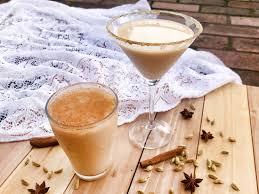Alcoholic Tea Market Insights Indicate Strong Demand in Urban Areas and Wellness-Focused Consumer Segments

The alcoholic tea market is witnessing impressive growth, particularly in urban regions and among health-conscious consumer groups. As the demand for convenient, flavorful, and functional beverages rises, alcoholic tea has emerged as a preferred option among city dwellers who seek a refreshing alternative to traditional beer, wine, or spirits. With its blend of real brewed tea, natural flavors, and low-to-moderate alcohol content, it perfectly fits the lifestyle of modern, wellness-focused consumers.
Urban populations, especially millennials and Gen Z professionals, are increasingly opting for beverages that combine taste, health, and convenience. Alcoholic tea meets these expectations with its clean-label ingredients, portable packaging, and light, sessionable ABV—making it the ideal drink for everything from rooftop gatherings to post-work relaxation.
City Living Spurs the Rise of Convenient, Clean Alcoholic Options
In densely populated urban centers, convenience is king. Consumers have busy schedules and are always on the lookout for grab-and-go products that don’t sacrifice quality or health. Alcoholic tea, often available in ready-to-drink cans, fits this need perfectly. Whether it’s a picnic in the park, an evening on the balcony, or a weekend at a friend’s flat, alcoholic tea is easy to transport, chill, and enjoy on the spot.
Its lightweight, non-glass packaging also makes it suitable for public spaces and events, which are common in cities. This accessibility, combined with its low alcohol content, positions alcoholic tea as an excellent choice for moderate drinking in social settings.
Wellness-Focused Consumers Seek Functional and Low-ABV Beverages
Today’s consumers are increasingly prioritizing wellness, and that extends to their alcohol choices. Instead of traditional drinks that are high in sugar or loaded with artificial ingredients, people are gravitating toward beverages with functional benefits. Alcoholic tea offers a unique balance of indulgence and health, featuring ingredients like:
-
Green tea and black tea for antioxidants and energy
-
Chamomile and lavender for relaxation and stress relief
-
Citrus and ginger for flavor and digestive support
-
Botanical infusions and adaptogens to promote wellness
These ingredients appeal to consumers who want to stay health-conscious without giving up social pleasures. With its lower ABV, alcoholic tea allows people to enjoy a drink or two while still maintaining clarity, hydration, and overall well-being.
Younger Urban Demographics Drive Category Growth
Millennials and Gen Z, especially those living in cities, are key drivers of the alcoholic tea market. These generations are known for their health awareness, brand consciousness, and openness to trying new beverage experiences. They’re more likely to read product labels, research ingredients, and choose brands that align with their personal values—such as sustainability, transparency, and quality.
Alcoholic tea brands are responding by offering products that meet these demands:
-
Organic, non-GMO ingredients
-
Low-calorie and low-sugar options
-
Eco-friendly and recyclable packaging
-
Stylish branding that fits the urban lifestyle
This demographic also favors drinks that are visually appealing and shareable on social media. Alcoholic tea’s sleek can designs, colorful visuals, and wellness-forward messaging make it a favorite at social events and weekend gatherings.
Premiumization and Innovation Elevate the Market
Urban consumers often seek premium experiences, and alcoholic tea is rising to meet this expectation. Brands are experimenting with bold flavor combinations and high-quality ingredients to elevate the drinking experience. Some popular offerings include:
-
Matcha mojito-style green tea cocktails
-
Sparkling hibiscus and elderflower teas with gin
-
Chai-spiced black tea with bourbon
-
Lemongrass and citrus teas with vodka
This flavor innovation is helping alcoholic tea stand out in a crowded RTD market, appealing to consumers who are tired of generic seltzers and malt-based drinks. The ability to offer both refreshment and complexity is a major reason for the category’s continued success in sophisticated, urban markets.
Distribution Expands in Urban Retail and Hospitality Channels
To meet the rising demand, alcoholic tea is increasingly found in city-based retailers, specialty liquor stores, organic markets, and upscale cafes. Hospitality venues—like boutique hotels, rooftop bars, and wellness resorts—are also adding alcoholic tea to their menus as a premium, low-ABV option that complements health-forward dining experiences.
Direct-to-consumer (DTC) platforms and subscription models are also gaining traction, especially in metropolitan areas where digital shopping is already the norm. This allows brands to reach niche audiences, offer customized flavor packs, and promote seasonal or limited-edition releases that keep customers engaged.
Conclusion
The alcoholic tea market is thriving, with urban consumers and wellness-minded drinkers leading the charge. By offering a flavorful, low-ABV, and health-conscious alternative to traditional alcoholic beverages, alcoholic tea aligns perfectly with the needs of modern city life.
Its portability, functional ingredients, and stylish branding make it a top choice for those who want to drink smarter without sacrificing social connection. As innovation continues and awareness spreads, alcoholic tea is poised to become a staple in the fridges, bags, and rooftops of urban dwellers worldwide.
- Art
- Causes
- Crafts
- Dance
- Drinks
- Film
- Fitness
- Food
- Spiele
- Gardening
- Health
- Startseite
- Literature
- Music
- Networking
- Andere
- Party
- Religion
- Shopping
- Sports
- Theater
- Wellness


